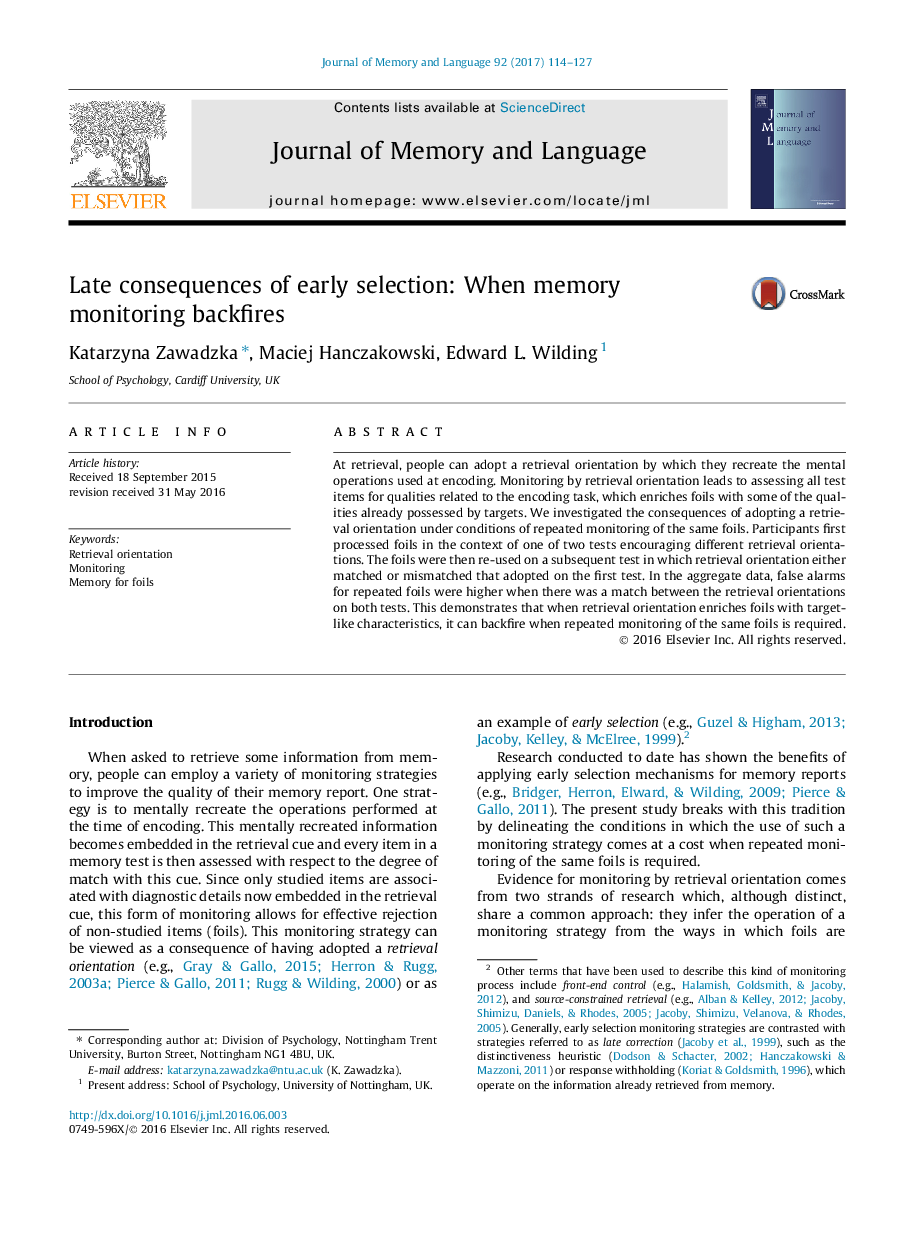| کد مقاله | کد نشریه | سال انتشار | مقاله انگلیسی | نسخه تمام متن |
|---|---|---|---|---|
| 931738 | 1474627 | 2017 | 14 صفحه PDF | دانلود رایگان |
• Adopting a retrieval orientation at test helps distinguish targets from foils.
• Monitoring foils with retrieval orientation enriches them with target-like details.
• Enriched foils may be confused with targets when monitored again.
• False alarms increase for foils monitored twice with the same retrieval orientation.
• Memory monitoring can backfire if applied repeatedly to the same materials.
At retrieval, people can adopt a retrieval orientation by which they recreate the mental operations used at encoding. Monitoring by retrieval orientation leads to assessing all test items for qualities related to the encoding task, which enriches foils with some of the qualities already possessed by targets. We investigated the consequences of adopting a retrieval orientation under conditions of repeated monitoring of the same foils. Participants first processed foils in the context of one of two tests encouraging different retrieval orientations. The foils were then re-used on a subsequent test in which retrieval orientation either matched or mismatched that adopted on the first test. In the aggregate data, false alarms for repeated foils were higher when there was a match between the retrieval orientations on both tests. This demonstrates that when retrieval orientation enriches foils with target-like characteristics, it can backfire when repeated monitoring of the same foils is required.
Journal: Journal of Memory and Language - Volume 92, February 2017, Pages 114–127
